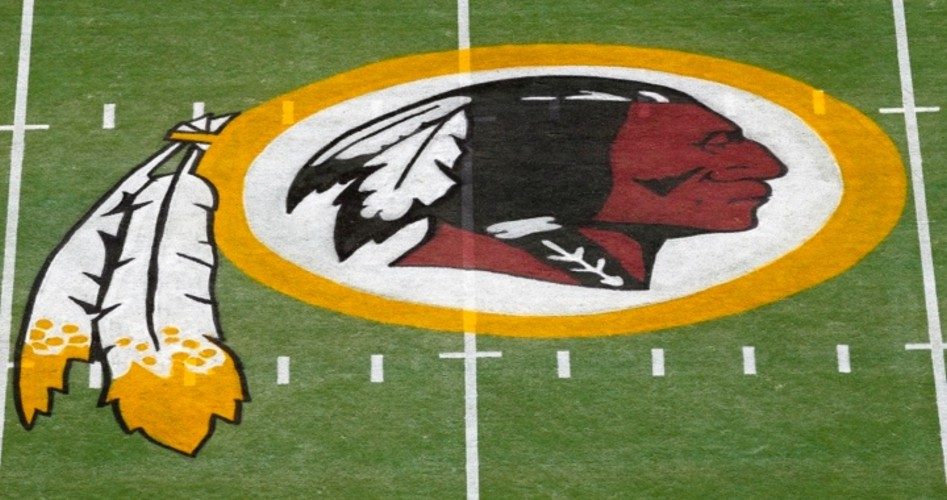
The American Civil Liberties Union has joined the fight to protect the trademark rights of the Washington Redskins, the controversial name of the National Football League team owned by Pro Football, Inc. A three-judge panel of The U.S. Patent and Trademark Office voted 2-1 last June to remove trademark protection from the team name, finding it disparaging to Native Americans. The owners have countersued to overturn the decision in U.S. District Court in Alexandria, Virginia, and the ACLU, joined by its Virginia chapter and the New York University Tech Law & Policy Clinic, has filed an amicus in support of the team. The civil liberties organization has no sympathy for the team’s name, staff attorney Esha Bhandari emphasized in a “Blog of Rights” posting, but argued the trademark board’s decision violates the constitutionally protected right of freedom of speech.
“The Washington Redskins is a name that is offensive and perpetrates racism against Native Americans,” Bhandari wrote. “Should it be changed? Yes. But should the government get to make that call? As we told a federal district court yesterday, the answer is no, because the First Amendment protects against government interference in private speech.”
“Under the First Amendment, viewpoint-based regulation of private speech is never acceptable, regardless of the controversy of the viewpoint,” the ACLU said in its amicus brief, arguing that the court should strike down as unconstitutional portions of the 1946 Lanham Act that prohibit trademark registration for any name that “consists of or comprises immoral … or scandalous” matter or would “disparage or falsely suggest a connection with persons, living or dead, institutions, beliefs, or national symbols, or bring them into contempt, or disrepute.”
The matter came to the patent office by petition of five members of American Indian tribes in Arizona, Oklahoma, Utah, Nebraska, and Florida, claiming the Redskins name disparages them by race, said the Washington Post. The office ruled in favor of a similar petition in 1992, but the U.S. Court of Appeals in Washington, D.C., overturned the decision on the grounds that the petitioners had waited too long after turning 18 to file their complaint and had thus lost legal standing on the issue. The court offered no opinion on the finding that the team’s name is disparaging.
The five litigants in the current case filed their petition in 2006 when they were all in their late teens and early 20s. In its ruling, the patent office’s Trademark Trial and Appeal Board based its decision on a several factors, including dictionaries that for decades have defined the word “redskin” as offensive. The board also took into account the National Congress of American Indians’ resolution in 1993 declaring that the team name has always been a “denigrating” and “racist” label, and letters from Native Americans arguing the Redskins is as much a slur as the” N-word” used against African Americans.
The trial board’s lone dissenter argued the plaintiffs failed to show the team’s name was disparaging when the organization obtained and renewed its trademark at various times between the 1960s and 1990s.
Should the team lose in U.S District Court, it can, and likely will, try again in federal appeals court. The trademark board’s decision will only take effect if the Redskins lose all appeals. Until then the trademark protection will still apply to jerseys, mugs and other items bearing the team’s name and logo. If it loses at the end of what has already been a nine-year long litigation in the case, it will weaken the team’s ability to protect the team name against infringement and block the sale of fake Redskins merchandise.
Neither the Redskins organization nor any member of the team “has ever engaged in behavior perceived as disparaging Native Americans,” the team’s lawsuit argues. That hardly seems to matter to many of the mainstream media organizations that have weighed in on the issue. Last fall, the New York Daily News joined a growing number of publications that refuse to use the team name, announcing it would “no longer refer to the Washington professional football team by its unacceptable nickname.” In its story on the team’s lawsuit, the Washington Post published a graphic showing 61 percent of people believe the team’s name should be changed. Underneath, in tiny font, it acknowledged that the numbers were “results from an unscientific survey of Washington Post readers.”
A few weeks later the Post reported the results of poll conducted for ESPN showing 71 percent in favor of the team keeping its name. More to the point, ESPN.com columnist Rick Reilly had previously noted that a remarkable number of Native Americans who were not only unoffended by the name, but take fierce pride in it.
“And I definitely don’t know how I’ll tell the athletes at Wellpinit (Wash.) High School — where the student body is 91.2 percent Native American — that the ‘Redskins’ name they wear proudly across their chests is insulting them,” Reilly wrote in a September 2013 column. “’Redskins’ is an honorable name we wear with pride,” Wellpinit Superintendent of Schools told Reilly. “In fact, I’d like to see somebody come up here and try to change it.”
At Kingston, Oklahoma High School, with a Native American population of 57.7 percent, the teams have been Redskins for more than a century, Reilly observed. The name was still being worn proudly, he noted, by high school athletes in Red Mesa, Arizona, with a student population at the school 99.3 percent Native American.
Suggested Reilly:
For the majority of Native Americans who don’t care, we’ll care for them. For the Native Americans who haven’t asked for help, we’re glad to give it to them.
Trust us. We know what’s best. We’ll take this away for your own good, and put up barriers that protect you from ever being harmed again.
Kind of like a reservation.



